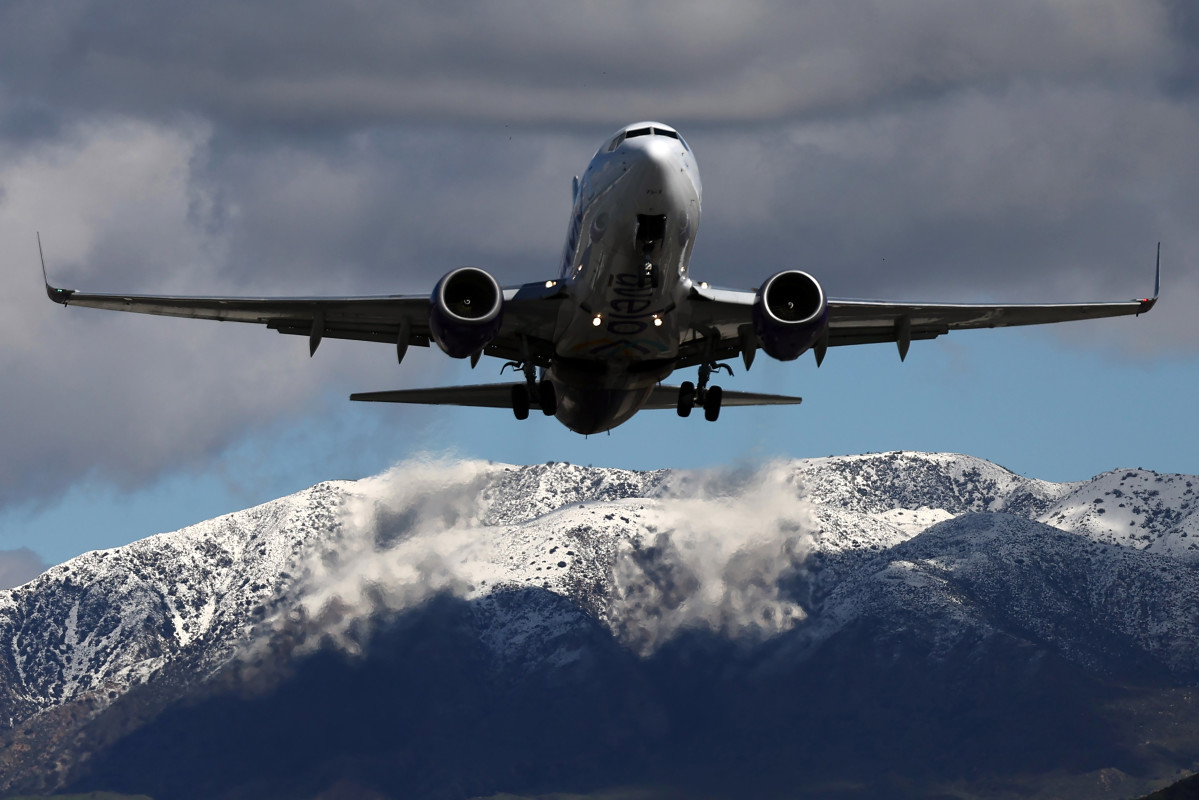
On Jan. 22, 2022, a JetBlue (JBLU) -) Airbus A320 was taking off from Yampa Valley Regional Airport in Colorado when the plane’s collision-avoidance system went off.
Safety officials said that a Beechcraft King Air 350 was about five miles away from landing on the same runway.
Related: 2 iconic Las Vegas Strip resort casinos enter their last days
The King Air crew was startled when the JetBlue plane announced that it was beginning to taxi on to the runway and told the JetBlue pilots “I hope you don’t hit us,” according to The Daily Mail.
A panel of sleep experts will recommend new ways to address air traffic controller fatigue, continuing our work to improve safety. Representatives from @harvardsleepmed and @NASAAmes and a former member of @NTSB will begin work in January. Learn more at https://t.co/UsfDJwM8tb. pic.twitter.com/xRaikAi6ia
— The FAA ✈️ (@FAANews) December 20, 2023
The JetBlue captain accelerated and pointed the nose of his jet up quicker than normal "due to his surprise about encountering head on landing traffic," the National Transportation Safety Board said. The plane's tail struck the runway.
Data indicated that the planes were about 2.6 miles apart when the JetBlue Airbus A320 began its climbing turn away from the airport.
The JetBlue planned flight to Florida was cut short and the aircraft landed at Denver International Airport.
Air traffic controller shortage
No one was injured, but the NTSB classified the tail strike as an accident and said damage to the JetBlue plane was "substantial."
The JetBlue incident is one of many near-miss incidents at the nation's airports and in response, the Federal Aviation Administration said on Dec. 20 that it is naming a panel of experts led by a former safety board official to address air traffic controller fatigue.
The three-member panel will examine how the latest science on sleep needs and fatigue considerations could be applied to controller work requirements and scheduling.
The panel will identify potential ways the FAA could better address controller fatigue.
The FAA is contending with a persistent air traffic controller shortage that has caused flight delays.
NSTB chair Jennifer Homendy told a Senate Commerce subcommittee last month that the aviation safety system is “showing clear signs of strain that we cannot ignore.”
“Air traffic controllers are being required to do mandatory overtime,” Homendy testified at the hearing, NPR reported on Nov. 9. “It ends up leading to fatigue and distraction, which is exactly what we're seeing as part of these incident investigations. And it all just comes down to the shortage of staffing.”
Rich Santa, the president of the National Air Traffic Controllers Association, said that many air traffic facilities are short-staffed. Mandatory overtime, including 6-day workweeks and 10-hour shifts, are routine, he told the subcommittee.
“It's unsustainable," Santa testified. "The answer is not continuing to burden us with more fatigue, and continuing to burden us with more effort and work. It's hiring the right amount of controllers so that our facilities are not understaffed.
Air travel volume is up
The volume of air travel has rebounded sharply after the Covid-19 pandemic, leaving the Federal Aviation Administration scrambling to hire and train enough air traffic controllers to keep up with demand.
In June, the Department of Transportation's Office of Inspector General found that 77% of critical air traffic control facilities were short-staffed.
Mark Rosekind, a safety and sleep/fatigue professional and former National Transportation Safety Board (NTSB) member, will chair the FAA panel.
As a member of the NTSB, Rosekind was on-scene for seven major transportation accidents. Automotive News named Rosekind the 2015 Industry Leader of The Year, a distinction typically reserved for auto industry executives.
The panel will begin its work in early January and provide a final report to the FAA about six weeks later.
The other panelists are Charles Czeisler, chief and senior physician, Division of Sleep and Circadian Disorders, Departments of Medicine and Neurology, Brigham and Women's Hospital; and Erin Flynn-Evans, head of the NASA Ames Research Center Fatigue Countermeasures Laboratory.
Health officials have stressed the importance of sleep. A survey by U.S. News & World Report found that nearly half of U.S. adults experienced some level of insomnia in 2023, and one in five U.S. adults say they rarely or never wake up feeling well-rested.
The National Sleep Foundation recommends adults between the ages of 18 and 64 get seven to nine hours of sleep each night.
Action Alerts PLUS offers expert portfolio guidance to help you make informed investing decisions. Sign up now.







